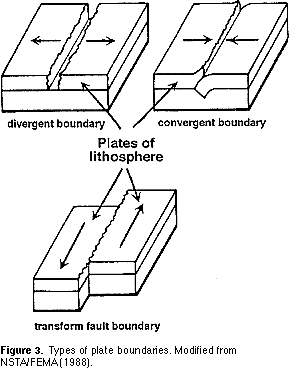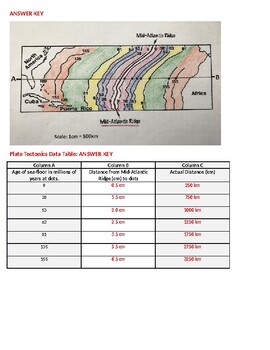Rates of seafloor spreading in the atlantic ocean are compatible with what is known about the breakup of pangaea.
Sea floor spreading is driven by volcanic activity blank.
The mid ocean ridge is where the seafloor spreading occurs in which tectonic plates large slabs of earth s lithosphere split apart.
Seafloor spreading is the usual process at work at divergent plate boundaries leading to the creation of new ocean floor.
The rate at which new oceanic lithosphere is added to each tectonic plate on either side of a mid ocean ridge is the spreading half rate and is equal to half of the spreading rate.
Marine magnetic anomalies result from seafloor spreading in conjunction with.
If the spreading rate relative velocity is high magma must be rising rapidly and the lithosphere is relatively hot beneath the ridge.
Seafloor spreading and other tectonic activity processes are the result of mantle convection.
Pangaea was one of several supercontinents that have formed and broken up during earth s history.
Seafloor spreading is driven by volcanic activity that occurs.
Mantle convection is the slow churning motion of earth s mantle.
Seafloor spreading at mid ocean ridges convection currents drive the movement of earth s rigid tectonic plates in the planet s fluid molten mantle.
Rates of seafloor spreading in the atlantic ocean are compatible with what is known about the breakup of pangaea.
Sea floor topography is controlled by the age of the oceanic lithosphere and the rate of spreading.
As two tectonic plates slowly separate molten material rises up from within the mantle to fill the opening.
Thus for fast spreading centers the ridge stands at higher elevations than for slow spreading centers.
Seafloor spreading is a geologic process where there is a gradual addition of new oceanic crust in the ocean floor through a volcanic activity while moving the older rocks away from the mid oceanic ridge.
In places where convection currents rise up towards the crust s surface tectonic plates move away from each other in a process known as seafloor spreading fig.
Hydrothermal structures such as pipes and pockmarks mainly occur in the proximity of volcanoes or accompany volcanic groups.
Pipes pockmarks and localized amplitude anomalies mainly constitute the magmatic hydrothermal systems which are probably driven by post seafloor spreading volcanoes plutons.
Convection currents carry heat from the lower mantle and core to the lithosphere.
Spreading rates determine if the ridge is fast intermediate or slow.









